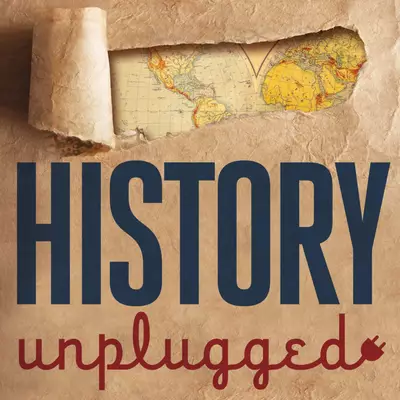Listen on Your Favorite App
Deeply-Held Religious Beliefs Can’t Be Easily Eradicated. That’s Why Stalin Co-Opted Russian Orthodoxy As a Ruler.
March 31, 2022
00:00
37:46
Listen on Your Favorite App
The Russian Revolution is thought to have everything to do with the writings of Karl Marx. He predicted in the 19th century that history was marching inevitably toward a proletarian revolution and workers would overthrow the capitalist system and replace it with a socialist one. To many observers in Moscow, that’s exactly what was happening. But one Russian scholar disagrees. He believes the Russian Revolution had nothing to do with Marx and everything to do with, paradoxically, the Russian Orthodox Church. Namely, Russia’s century-old history of Orthodox monasticism.
Today’s guest is Jim Curtis, a Russian scholar, professor emeritus, and author of In Stalin’s Soviet Monastery. The story begins with the young Iosif Djugashvili, later known as Joseph Stalin, who was studying to be a priest in an Orthodox seminary. He took on the role that defined his political career, that of a sadistic elder who imposed fiendish vows of poverty, chastity, and obedience on hapless Soviet citizens. This led to Stalin’s policies essentially copying passion-suffering, a practice in which one takes on the sufferings of Christi to achieve sanctification, which he used to force gulag slave labor to work on useless infrastructure projects to purify them as a proper Soviet.
Applying Russia’s heritage of Orthodox monasticism to Soviet history gives coherence and meaning to what is often portrayed as a chaotic and contradictory period. Thus, by ignoring Marxist rhetoric and emphasizing Russia’s monastic heritage, it arguably makes sense that Russians would perceive Lenin as a Christ figure with appropriate symbolism.
Today’s guest is Jim Curtis, a Russian scholar, professor emeritus, and author of In Stalin’s Soviet Monastery. The story begins with the young Iosif Djugashvili, later known as Joseph Stalin, who was studying to be a priest in an Orthodox seminary. He took on the role that defined his political career, that of a sadistic elder who imposed fiendish vows of poverty, chastity, and obedience on hapless Soviet citizens. This led to Stalin’s policies essentially copying passion-suffering, a practice in which one takes on the sufferings of Christi to achieve sanctification, which he used to force gulag slave labor to work on useless infrastructure projects to purify them as a proper Soviet.
Applying Russia’s heritage of Orthodox monasticism to Soviet history gives coherence and meaning to what is often portrayed as a chaotic and contradictory period. Thus, by ignoring Marxist rhetoric and emphasizing Russia’s monastic heritage, it arguably makes sense that Russians would perceive Lenin as a Christ figure with appropriate symbolism.
See omnystudio.com/listener for privacy information.
More Episodes
See all episodes
Meet Your Host

Scott Rank is the host of the History Unplugged Podcast and a PhD in history who specialized in the Ottoman Empire and modern Turkey. Before going down the academic route he worked as a journalist in Istanbul. He has written 12 history books on topics ranging from lost Bronze Age civilizations to the Age of Discovery. Some of his books include The Age of Illumination: Science, Technology, and Reason in the Middle Ages and History’s 9 Most Insane Rulers.. Learn more about him by going to scottrankphd.com.
